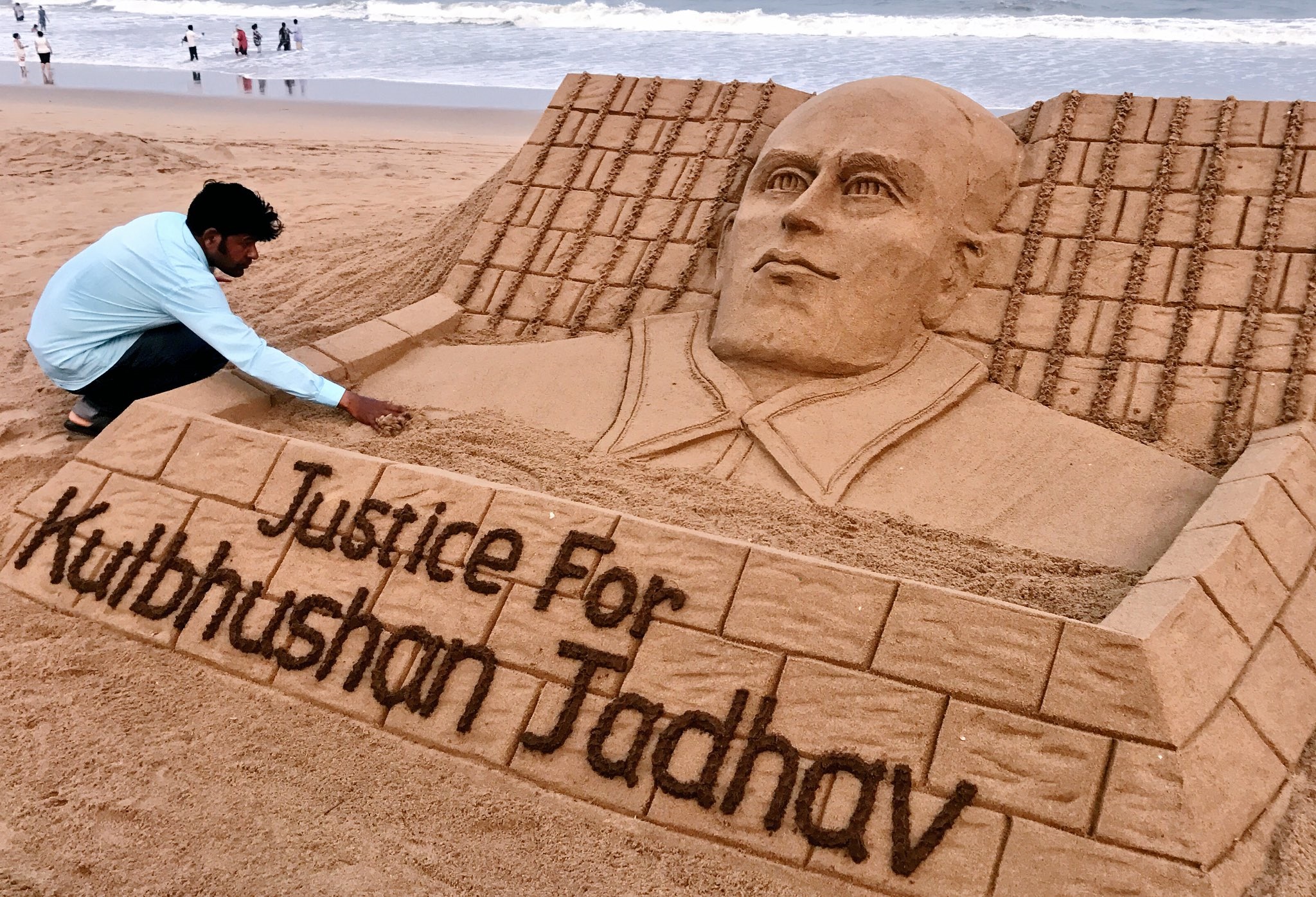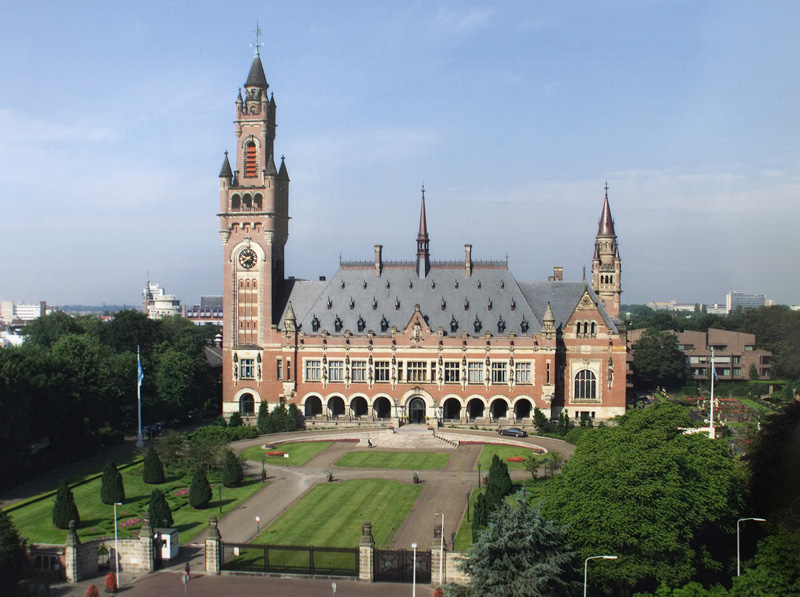Yesterday afternoon, the International Court of Justice (ICJ) at the Hague ordered provisional measures in the India-Pakistan Kulbhushan Jadhav case. Specifically, they stayed the execution of the Indian national till the verdict of the ICJ was delivered.
The case concerns Jadhav, who was arrested by Pakistan as an Indian spy, tried in a military court and sentenced to death. These provisional measures, under international law, will be effective immediately and unless modified by the court, will remain binding until the conclusion of the hearings.
The court has not gone into the merits of the case so far; rather, this is just a measure to pause proceedings so they have a chance to review the evidence both countries have and will put forth. The judgment of the court found:
a)That since there was a dispute relating to consular access under Article 36 of the Vienna Convention on Consular Relations, in particular, the extent of the obligations that India and Pakistan felt were required under Article 36, there existed prima facie jurisdiction under Article 1 of the Optional Protocol of the Vienna Convention. This arose because of the allegations India has made regarding Pakistan's delayed consular notifications and failure in informing him of consular access at the time of his arrest. Since the Vienna Convention is not explicit on the question of Terrorists and Spies not being subject to the Convention, the Court will not consider the question at this interim stage.
b)That the question of the 2008 Bilateral Agreement between India and Pakistan limiting the rights under the Vienna Convention is a question that can be answered at a later stage as there is no explicit bar to the jurisdiction of the ICJ under the 2008 India-Pakistan bilateral Agreement.
c)That the purpose of Provisional Measures is to protect the rights of the Parties while the matter is going on. For this to be granted the rights claimed must be plausible and there must be a link between the rights and provisional measures that are requested. India's reliefs claimed are plausible and since at the interim stage the Court is not required to decide if they are definitive, provisional measures may be granted.
Based on this reasoning, the court ordered the following provisional measures:
a)Take all steps to ensure that Jadhav is not executed.
b)Report to the Court the steps it's taken in compliance with the Order.
c)Until the Court has decided on the final matter, be ceased of subject matters that form a part of the Order.
Of course, even with the ICJ’s directive to halt the execution, it’s uncertain whether Pakistan will abide by it or not. In fact, even before the verdict was announced yesterday, Pakistan had stated that it did not recognise the jurisdiction of the ICJ in this matter. While they may not execute him, they are likely to keep blocking consular access to Jadhav and proceed with the appeal proceedings with Jadhav suffering from an inadequate defense.
Senior lawyer Harish Salve, who fought India’s case at the ICJ, said that he had anticipated New Delhi’s victory, and added the ruling was “binding” on Islamabad.
“The court has made it very clear that our decision is binding. ‘You report back to us measures you are taking. We are monitoring you’,” Salve said.
Salve said that consular access to Jadhav would be given now, but he has asked for “restitution”.
“There have been cases when the court said you have to annul the process and go back. That is called a principle of restitution. That is what we are fighting for. Can we take it to another level, saying in today’s circumstances that you have to release the man?” Salve said.
Pakistan reacted to the order not to execute Jadhav by saying it is determined to pursue the case to its “logical end”.
Foreign Office spokesman Nafees Zakaria said Pakistan had already made it clear it doesn’t accept the United Nations’ highest court’s jurisdiction in national security matters. Pakistan attorney general Ashtar Ausaf Ali contended the ICJ’s order amounted to maintaining the ‘status quo’ in Jadhav’s case.
The ICJ had earlier rejected Pakistan’s stance that it does not have the jurisdiction to take up the case.
A statement from the attorney general’s office said Pakistan attended the hearing at the ICJ “because of its conviction that the only way to resolve all outstanding issues is through peaceful means”.
Talking to state-run Pakistan Television after the order was issued, Zakaria said India was “trying to hide its real face” by taking Jadhav’s case to the ICJ. Zakaria also reiterated that Pakistan does not accept the ICJ’s jurisdiction in matters related to national security. Pakistan, he added, “will present solid evidence against the Indian spy in the international court”.
Pakistan maintains that Jadhav had confessed to espionage and fomenting terrorism, and that India is fighting this case to gain political points at home. It claims Jadhav was arrested in March last year in the restive Balochistan province. In April 2017, a military court sentenced him to death for alleged involvement in spying and subversive activities.
The ICJ verdict, while hailed in India, has drawn the ire of Pakistani citizens who remain convinced Jadhav is a convicted terrorist. Neglecting the rushed nature of the trial, the ambiguous evidence and the disregard for due process, they took to trolling Virender Sehwag on Twitter to express their rage and created #PakistanisrejectICJ, which was furiously attacked by Indians.
India has contended he was kidnapped from the Iranian port of Chabahar and his secret trial was a “farce”. And legal experts, both from Pakistan and India, pointed to several mistakes made by the government and the legal team. They claimed that by agreeing to argue before the ICJ, they have recognised its authority in implicit form.
Shaiq Usmani, a retired judge of the Supreme Court, recognised the binding nature of the decision in disguised form despite claiming that the “ICJ does not have jurisdiction”. He said, “It is Pakistan’s mistake to have appeared there. They shouldn’t have attended. They have shot themselves in the foot.”
He added, “Until the ICJ gives it verdict, the case will go on in Pakistan. But (Jadhav) cannot be executed until the stay order is there.”
In addition, the fact that Jadhav has been isolated from legal counsel and consular access also served to make Pakistan’s case even more shaky. With the world’s eyes on it, Pakistan has dropped the ball in the Jadhav case and India needs to pick it up to ensure the safety of one of its citizens.


